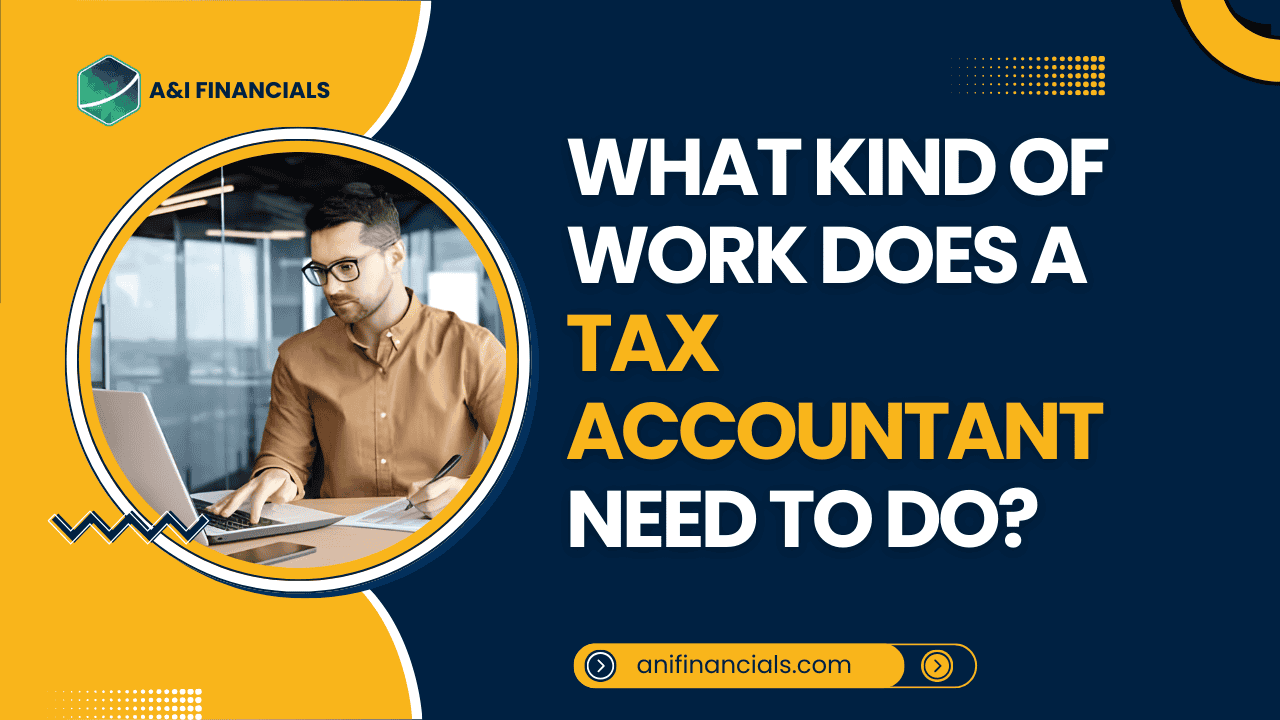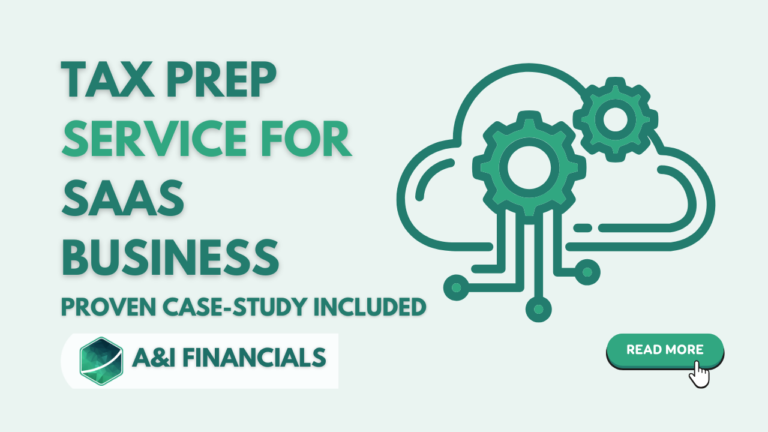What Kind of Work Does a Tax Accountant Need to Do? (Responsibilities With Salary)
Hey there! Ever wondered what kind of work a tax accountant needs to do? Well, let me break it down for you. Tax accountants are the unsung heroes who make sure our taxes are filed correctly, keeping us out of trouble with the IRS. So, what kind of work does a tax accountant need to do? They handle everything from preparing and filing tax returns to giving advice on how to save on taxes. Sounds interesting, right? Let’s dive deeper into the world of tax accountants and explore their responsibilities, skills, tools, and more.
Core Responsibilities of a Tax Accountant
Tax Preparation
Tax accountants spend a significant chunk of their time preparing federal, state, and local tax returns for individuals and businesses. They ensure that all tax documents are accurate and comply with the latest tax laws and regulations. This involves gathering financial information, calculating tax liabilities, and completing the necessary forms.
Tax Planning
Tax planning is another critical aspect of a tax accountant’s job. They develop strategies to minimize tax liabilities, helping clients keep more of their hard-earned money. This might include advising on tax-efficient investments and retirement plans. Imagine having a personal guide to navigate the complex world of taxes and save you money – that’s what tax accountants do!
Tax Compliance
Ensuring compliance with tax laws is crucial. Tax accountants make sure all filings are accurate and timely. They stay updated with the ever-changing tax legislation to avoid any legal issues for their clients. It’s like having a watchdog who keeps an eye on the tax law changes and ensures you’re always in the clear.
Audit Assistance
When the IRS or state tax authorities come knocking, tax accountants step in to represent their clients during audits. They respond to inquiries and provide the necessary documentation to resolve any issues. This can be a stressful time for clients, but having a knowledgeable tax accountant can make the process much smoother.
Bookkeeping and Record Keeping
Maintaining accurate financial records is essential for tax purposes. Tax accountants organize receipts, invoices, and other documentation to ensure everything is in order. This meticulous record-keeping helps in preparing accurate tax returns and can be a lifesaver during audits.
Skills and Qualifications Required
Educational Background
Most tax accountants hold degrees in accounting, finance, or related fields. A strong educational foundation is crucial for understanding the complexities of tax laws and accounting principles.
Certifications
Many tax accountants pursue certifications to enhance their credentials. The most common ones are Certified Public Accountant (CPA) and Enrolled Agent (EA). These certifications require passing rigorous exams and adhering to strict ethical standards.
Technical Skills
Proficiency in accounting software like QuickBooks, FreshBooks, and Xero is essential. Tax accountants also use tax preparation software such as TurboTax, H&R Block, and TaxAct to streamline their work. Familiarity with data analysis tools like Excel and Google Sheets is also beneficial.
Soft Skills
Attention to detail, strong analytical and problem-solving skills, and excellent communication abilities are vital for a tax accountant. They need to explain complex tax concepts in simple terms and provide clear guidance to clients.
Average Salary of a Tax Accountant in the US
In the United States, the salary of a tax accountant can vary based on factors such as experience, location, and certifications. According to the Bureau of Labor Statistics, the average salary for a tax accountant in the US is around $70,000 per year.
Entry-level tax accountants, often equipped with bachelor’s degrees in accounting, can expect to start with salaries ranging from $50,000 to $60,000 annually. With several years of experience and advanced certifications like CPA (Certified Public Accountant) or EA (Enrolled Agent), professionals can see their earnings increase significantly, often surpassing $90,000 annually.
Additionally, those working in metropolitan areas or specialized sectors may earn even higher salaries, reflecting the demand and complexity of the work. Overall, tax accounting offers a lucrative and stable career path for those with the right skills and qualifications.
Tools and Technology Used
Accounting Software
Tax accountants rely on accounting software like QuickBooks, FreshBooks, and Xero to manage financial records and transactions. These tools help in maintaining accuracy and efficiency in their work.
Tax Software
Tax preparation software such as TurboTax, H&R Block, and TaxAct simplifies the process of preparing and filing tax returns. These tools are designed to handle various tax scenarios, making it easier for tax accountants to ensure compliance.
Data Analysis Tools
Excel and Google Sheets are commonly used for data analysis and financial modeling. These tools help tax accountants analyze financial data, identify trends, and make informed decisions.
Client Management Systems
Customer Relationship Management (CRM) tools specific to accounting firms help manage client interactions and streamline communication. These systems ensure that all client information is organized and easily accessible.
Types of Clients Served
Individual Taxpayers
Tax accountants work with a diverse range of individual taxpayers, including high-net-worth individuals, self-employed individuals, freelancers, and gig workers. Each client has unique tax needs, and tax accountants tailor their services accordingly.
Small Businesses
Small businesses, including sole proprietorships, partnerships, LLCs, and S corporations, rely on tax accountants to manage their tax obligations. These businesses often face complex tax scenarios that require expert guidance.
Corporations
C corporations and multinational companies have intricate tax structures that demand specialized knowledge. Tax accountants help these organizations navigate the complexities of corporate tax laws and regulations.
Non-Profit Organizations
Non-profit organizations, such as charities and educational institutions, have unique tax requirements. Tax accountants ensure these organizations maintain their tax-exempt status and comply with all regulatory requirements.
Regulatory Bodies and Compliance
Internal Revenue Service (IRS)
The IRS is the primary federal agency responsible for tax collection and enforcement. Tax accountants must ensure that all tax filings comply with IRS regulations to avoid penalties and audits.
State Tax Agencies
Each state has its own tax agency responsible for collecting state taxes. Tax accountants must be familiar with the specific tax laws and regulations of the states where their clients operate.
Securities and Exchange Commission (SEC)
The SEC oversees the securities industry and enforces regulations related to financial reporting. Tax accountants working with publicly traded companies must ensure compliance with SEC requirements.
Financial Accounting Standards Board (FASB)
The FASB establishes accounting standards for public and private companies. Tax accountants must stay updated with FASB guidelines to ensure accurate financial reporting.
Local Tax Authorities
Local tax authorities, such as city and county tax offices, have their own tax regulations. Tax accountants must ensure compliance with these local tax laws to avoid issues for their clients.
Common Tax Forms and Documentation
Individual Tax Forms
Individuals file tax returns using forms such as Form 1040, Schedule A for itemized deductions, and Schedule C for self-employment income. These forms capture various aspects of an individual’s financial situation.
Business Tax Forms
Businesses use forms like Form 1120 for corporations, Form 1065 for partnerships, and Form 941 for payroll taxes. Each form serves a specific purpose in reporting business income and expenses.
International Tax Forms
For clients with international financial interests, forms like Form 5471 for foreign corporations and Form 8938 for foreign assets are required. These forms ensure compliance with international tax laws.
Payroll Forms
Employers use forms such as W-2 for reporting employee wages, W-3 for summarizing total wages, and 1099-MISC for reporting payments to independent contractors. Accurate payroll reporting is crucial for tax compliance.
Key Tax Concepts and Strategies
Deductions and Credits
Tax accountants help clients maximize deductions and credits to reduce their tax liabilities. This includes understanding the difference between the standard deduction and itemized deductions and identifying common tax credits like the Earned Income Tax Credit and Child Tax Credit.
Depreciation and Amortization
Depreciation and amortization are methods of allocating the cost of assets over their useful lives. Tax accountants use these methods to reduce taxable income by deducting the cost of business assets.
Tax Deferral Strategies
Tax deferral strategies, such as contributing to 401(k) plans and IRAs, help clients delay tax liabilities. These strategies are essential for long-term financial planning and reducing immediate tax burdens.
Estate and Gift Tax Planning
Estate and gift tax planning involves strategies to minimize taxes on the transfer of wealth. This includes understanding the lifetime gift exclusion and estate tax thresholds to optimize wealth transfer.
Industry Trends and Updates
Legislative Changes
Tax laws are constantly evolving, and tax accountants must stay informed about recent tax reforms and upcoming changes. Continuous education and professional development are essential to keep up with these legislative changes.
Technology in Tax Accounting
The use of automation and artificial intelligence in tax preparation is on the rise. These technologies streamline the tax filing process and improve accuracy, allowing tax accountants to focus on more complex tasks.
Market Trends
There is an increasing demand for virtual tax services, driven by the convenience and accessibility of online platforms. Economic conditions also impact tax policies, and tax accountants must adapt to these changes to serve their clients effectively.
What Kind of Work Does a Tax Accountant of A&I Financials Do?

At A&I Financials, tax accountants are dedicated professionals who handle a wide range of responsibilities to ensure clients’ financial well-being. They prepare and file federal, state, and local tax returns, ensuring compliance with ever-changing tax laws. Additionally, they provide strategic tax planning advice to minimize liabilities and maximize savings. Their expertise extends to representing clients during IRS audits, maintaining accurate financial records, and offering tailored solutions for both individuals and businesses. With a focus on personalized service, A&I Financials’ tax accountants are committed to delivering precise, reliable, and comprehensive tax solutions.
Challenges and Solutions in Tax Accounting
Common Challenges
Tax accountants face several challenges, including keeping up with frequent tax law changes, managing client expectations, and meeting tight deadlines. These challenges require a proactive approach and effective time management.
Solutions and Best Practices
Continuous education and professional development are vital for staying updated with tax laws and regulations. Implementing efficient workflow processes and using advanced technology can also help manage workloads and improve productivity.
Case Studies and Real-life Examples
Successful Tax Planning Strategies
One of my clients, a small business owner, was able to save thousands of dollars in taxes by implementing a strategic tax planning approach. We maximized deductions, utilized tax credits, and deferred income to lower their tax liability significantly.
Audit Defense Success Stories
Another client faced an IRS audit due to discrepancies in their tax returns. By providing accurate documentation and representing them during the audit, we successfully resolved the issue without any penalties.
Conclusion
So, what kind of work does a tax accountant need to do? From tax preparation and planning to compliance and audit assistance, tax accountants play a crucial role in managing taxes for individuals and businesses. They have the skills, knowledge, and tools to navigate the complex world of tax laws, ensuring that their clients stay compliant and save money. Whether you’re an individual taxpayer or a business owner, having a tax accountant by your side can make all the difference.
FAQs
To become a tax accountant, you typically need a bachelor’s degree in accounting or finance. Additionally, certifications like CPA (Certified Public Accountant) or EA (Enrolled Agent) can enhance your credentials.
A tax accountant helps with tax planning by developing strategies to minimize tax liabilities, advising on tax-efficient investments, and ensuring compliance with tax laws to optimize your financial situation.
A CPA (Certified Public Accountant) is a licensed accounting professional who has passed the CPA exam and met state requirements. A tax accountant may not have a CPA license but specializes in tax preparation and planning.
Tax accountants assist small businesses by preparing and filing business tax returns, providing tax planning advice, ensuring compliance with tax laws, and representing the business during audits.
Tax accountants commonly use software like TurboTax, H&R Block, and TaxAct for tax preparation, along with accounting software such as QuickBooks and FreshBooks for managing financial records.






